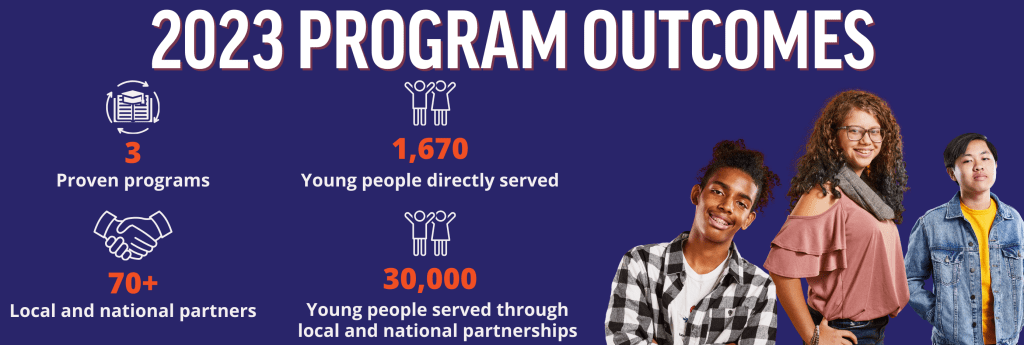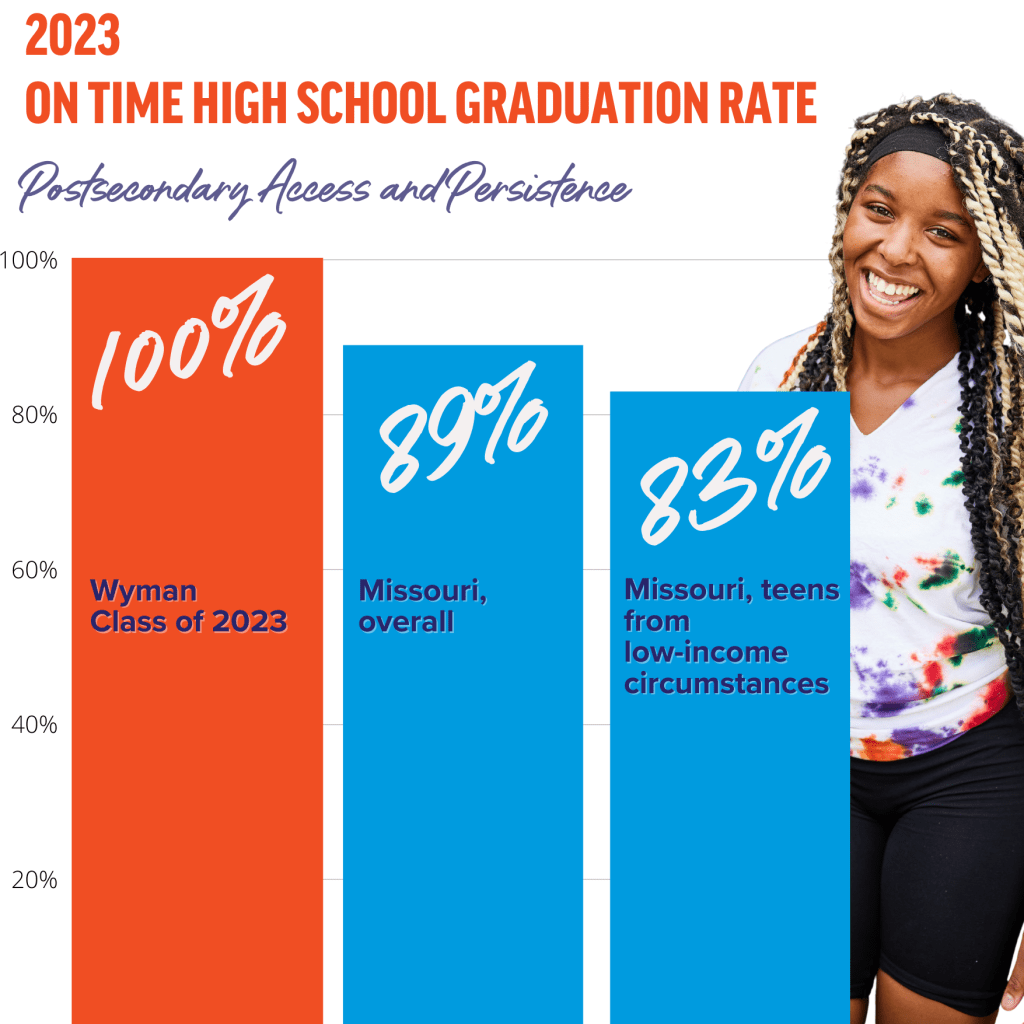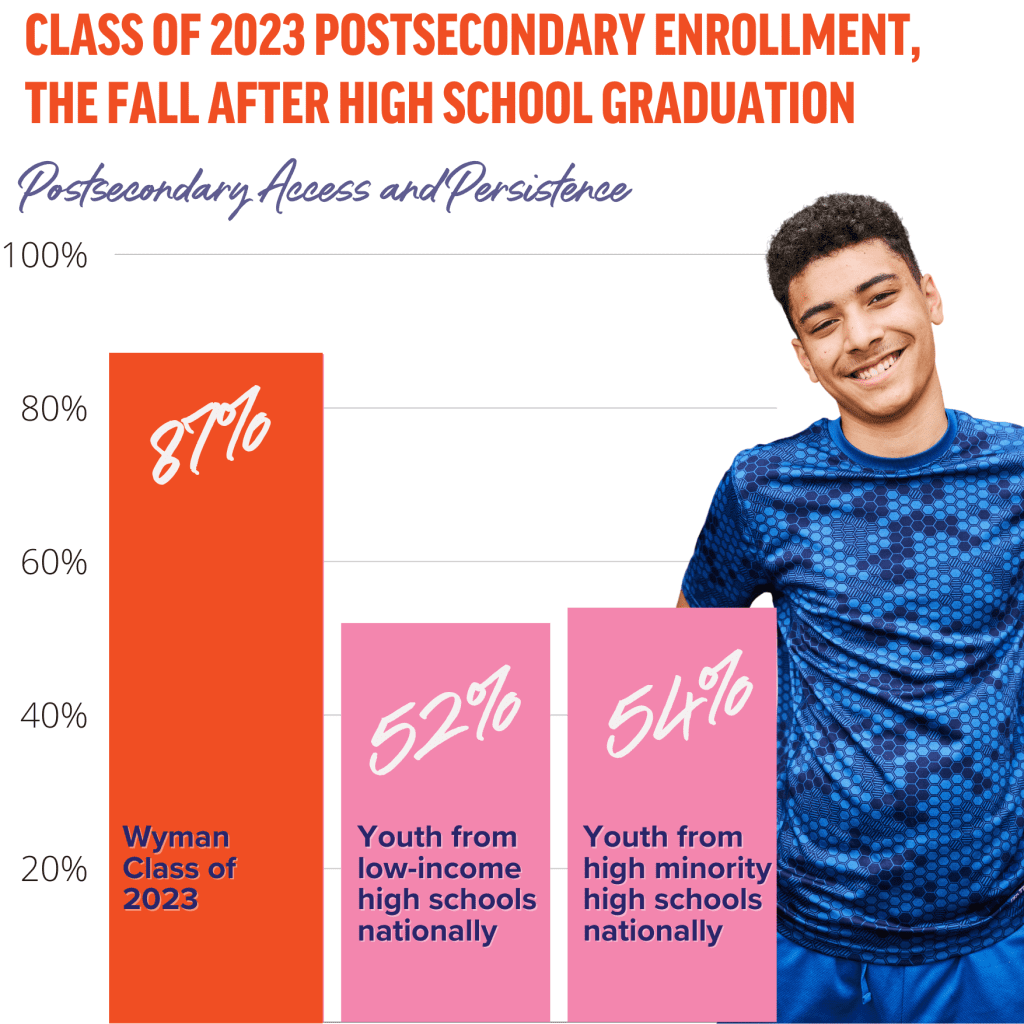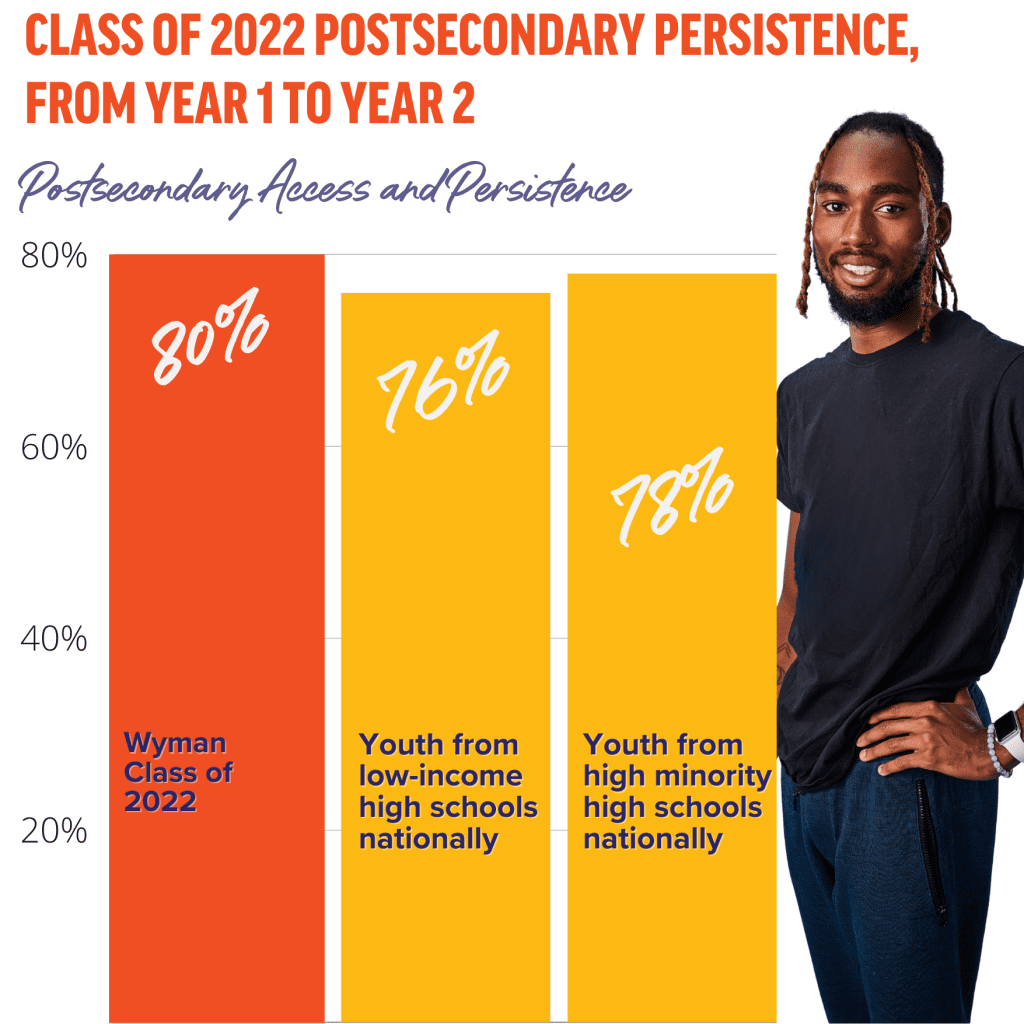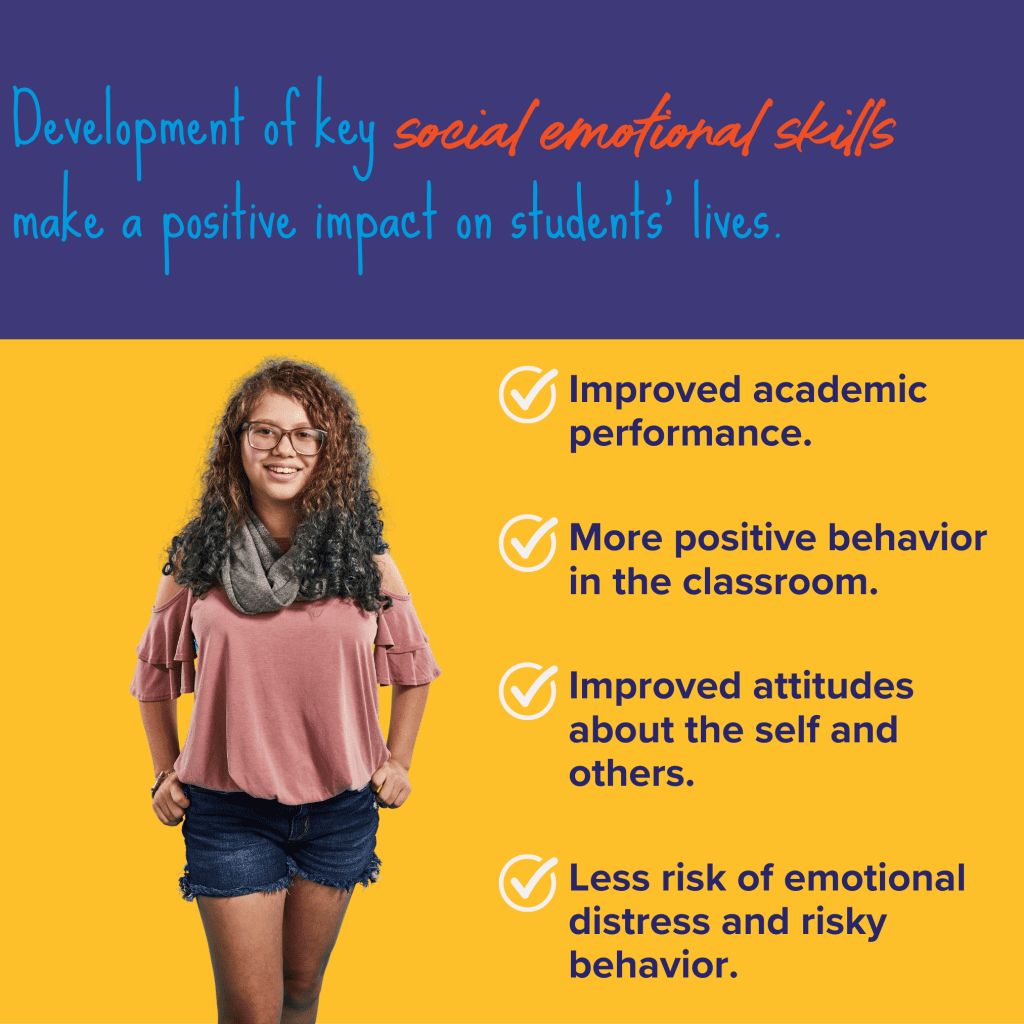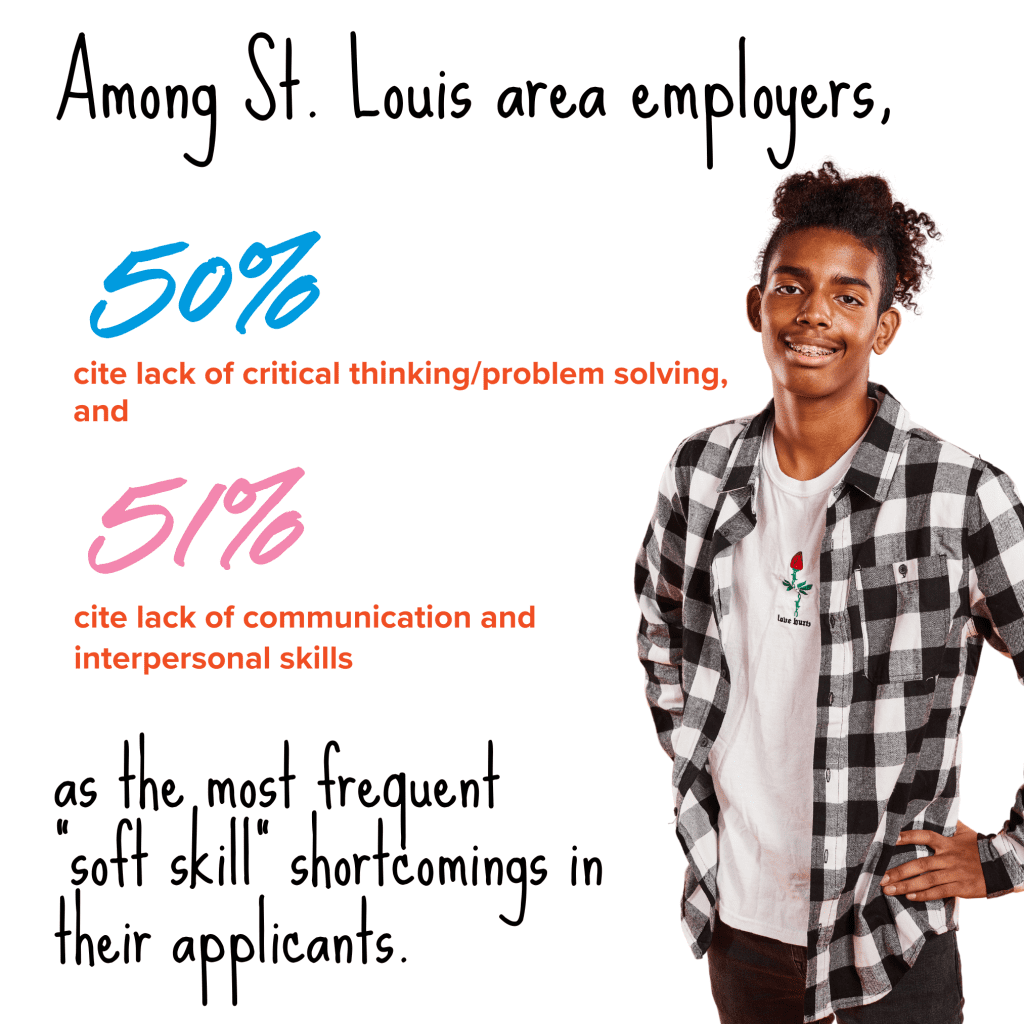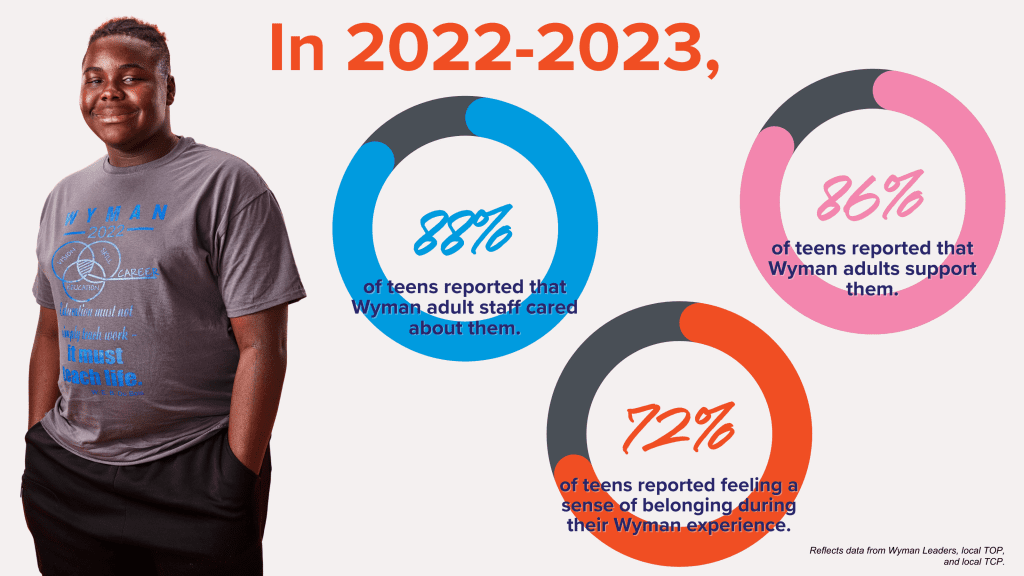2023 Outcomes
Adolescence can be a period of significant challenges. It is also a time of extraordinary growth and development. As experts in youth development, we implement proven programs to support teens during this pivotal time. We are pleased to share with you that the young people we serve are making meaningful progress that will have a lifetime of impact.
In 2023, 1,670 young people participated in Wyman’s three direct service programs – Wyman Leaders, the Teen Outreach Program® (TOP®), and the Teen Connection Project® (TCP®).
We extend our reach through over 70 partnerships locally and across the country to serve more than 3,000 young people in the St. Louis area, and more than 30,000 young people across the country.
Research across all three of our programs shows that they positively impact youth well-being, skill building, and educational success. And we are excited to share our 2023 direct service outcomes with you.
Note: The outcomes below pertain to Wyman’s local, direct service programs and the 1,670 young people we directly served. For more information on our national replication, please visit our National Network. Additionally, the outcomes above refer to young people in all three of our programs – Wyman Leaders, TCP, and TOP. For individual program outcomes, please refer to those program pages.
At Wyman, social connections and relationships are at the heart of the work we do with young people – and they are foundational to strong, long-term outcomes, like educational and career success, life and leadership skills, and healthy behaviors.
Across all three programs, young people demonstrate improved social-emotional skills and are building connections and feeling a sense of belonging with their Wyman coaches and peers. Wyman Leaders continue to graduate from high school on time and enroll and persist in postsecondary education.
Years of research tell us that supportive relationships are linked to social-emotional skill development. In turn, social and emotional skills support improved academic achievement. In contrast, one of the impacts of the pandemic has been what the U.S. Surgeon General calls “an epidemic of loneliness, isolation, and social disconnection.” Those at greatest risk include members of marginalized groups, as well as youth and young adults. At Wyman, we serve young people within these demographic groups, who are not only dealing with the impact of isolation on their mental health and social connections, but also on their education and career choices.
We know how this epidemic of loneliness continues to impact their lives, and we are committed to supporting them and standing with them as they create the futures they envision for themselves. Wyman programs amplify youth leadership, elevate social connections, and expand opportunities for young people who face economic and systemic barriers. Each day, they show us their courage, inspiration, skills, and determination to succeed.
Wyman teens are graduating from high school and enrolling and persisting in postsecondary education at high rates.
Achieving a postsecondary degree or credential can be transformative for young people. Nationally, we know the pandemic has had a significant impact on postsecondary enrollment and persistence. Even prior to the pandemic, college affordability was an increasing concern.
However, our Wyman Leaders’ educational outcomes exceed those of youth with similar backgrounds and socioeconomic circumstances. 100% of the Wyman Leaders Class of 2023 graduated from high school on time. Additionally, postsecondary enrollment and rates of persistence among Wyman Leaders postsecondary students have largely returned to their pre-pandemic levels, with 87% of the Class of 2023 enrolling in a postsecondary option during the Fall of 2023, and 80% of the Class of 2022 persisting in a postsecondary option from Year 1 to Year 2.
Wyman teens are developing social-emotional skills and competencies that are important for success in life.
Research shows that social-emotional skills are vital and go ‘hand-in-hand’ with academic and life success. Social-emotional skills, which are also sometimes referred to as ‘life skills,’ include managing emotions, solving problems, making decisions, developing empathy, and establishing and maintaining positive relationships. The process of developing these skills is often referred to as ‘social-emotional learning’.
Wyman’s social-emotional outcomes have remained strong and steady over the last several years. The young people in our programs are developing skills like empathy, communication, and problem solving that will prepare them for educational and career success. In 2023, at least 74% of Wyman teens reported moderate to high levels of social-emotional skills.
Wyman teens are building connections with supportive adults and feeling a sense of belonging.
Wyman programs support youth in relationships, connections, and belonging. Now, more than ever, these have been recognized as essential supports to adolescents, their well-being, and their success.
Wyman’s outcomes show that strong relationships and connections among Wyman teens and with supportive adults were sustained throughout the pandemic. In particular, Wyman teens report having positive, supportive relationships with their Wyman facilitators. 86% reported that their Wyman facilitators support them and 72% report feeling a sense of belonging during their Wyman experience.
It is critical for students to feel valued, accepted, and celebrated for who they are. This has always been important at Wyman. We know that healthy relationships with peers and adults and a sense of belonging are critical to teen’s health, well-being, and positive life trajectories, and we remain ready to support adolescents and build up these positive relationships through each of our programs.


